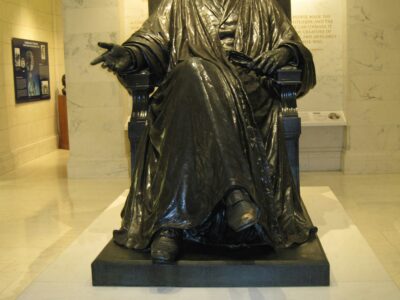The Third Political Branch
Legal Planet: Environmental Law and Policy 2024-07-01

In 2021, Supreme Court Justice Amy Coney Barrett famously said, “my goal today is to convince you that [the Supreme] Court is not comprised of a bunch of partisan hacks.” Justice Barrett is correct. The Justices are not hacks, but rather polished political actors. Let’s review:
- In West Virginia v. EPA, 142 S. Ct. 2587 (2022), the Court created the Major Questions Doctrine, precluding federal agencies from resolving questions of “vast economic and political significance” without clear statutory authorization. Who decides if the matter involves vast economic and political significance? The Court.
- Stare decisis and precedent have receded, providing the Supreme Court majority with greater power to change the law. Take your pick – Dobbs and Friday’s rejection of the Chevron doctrine, come immediately to mind.
- Ethics rules do not apply to Supreme Court Justices (or, when they do, the Justices determine their application). By way of comparison, even junior employees of the state of California cannot accept gifts of over $590 (aggregate) in a calendar year – not really enough to fund a trip to a Bali resort with billionaires.
- By granting review of Trump’s blanket immunity claim and leaving its decision until July, regardless of the decision, the Court majority has likely precluded pre-election prosecution.
- The Court’s growing use of the shadow docket for substantive matters has increased its power over the judicial system and agency action.
- Last week, in overturning Chevron, the Court majority determined that federal agencies no longer receive deference in interpreting statutes that they are directed to implement. Who now makes the interpretation? The Court. That makes perfect sense, of course, given the Court’s deep expertise in issues of technology, climate science, aviation, drugs, social media, and any of the thousands of issues that agency regulations touch upon, following extensive and often nuanced consideration of massive public records.
The Supreme Court majority has carefully and repeatedly increased its own power as it diminishes that of the Executive Branch (and to a lesser extent, Congress as well). It has now weighed into presidential politics, rejected meaningful ethical guidelines, and made itself the sole arbiter of statutory intent regardless of the issue or technical knowledge needed. These are savvy political actions effectively shifting the balance of power.
It is time to have a much more serious consideration of term limits for Supreme Court Justices.